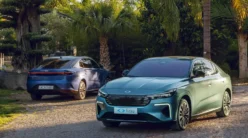The International Space Station (ISS) stands as a marvel of international cooperation and human ingenuity, orbiting the Earth as a symbol of scientific progress and exploration. Here are key insights into the International Space Station that everyone should be aware of:
Origins and Construction
The ISS is a collaborative effort involving space agencies from around the world, including NASA (United States), Roscosmos (Russia), ESA (European Space Agency), JAXA (Japan Aerospace Exploration Agency), and CSA (Canadian Space Agency). The station’s construction began in 1998, and its assembly involved numerous spaceflights to transport and assemble various modules.
Habitable Space
The ISS serves as a microgravity and space environment research laboratory. It consists of pressurized modules for crew living and working, unpressurized truss segments for structural support, solar arrays for power, and various other components. The habitable space provides astronauts with living quarters, laboratories, and workspaces.
International Crew
One of the defining features of the ISS is its international crew. Astronauts and cosmonauts from different countries live and work together, conducting scientific experiments that benefit humanity as a whole. The station has been continuously inhabited since November 2000.
Scientific Research
The ISS serves as a unique platform for scientific research in microgravity. Experiments conducted on the station contribute to our understanding of physics, biology, astronomy, and materials science. The results have practical applications on Earth and contribute to preparations for future long-duration space missions.
Earth Observation
The ISS provides a vantage point from which astronauts can observe Earth. This unique perspective allows for the monitoring of natural disasters, climate changes, and other Earth-related phenomena. High-resolution cameras on the station contribute valuable data for scientific research and environmental monitoring.
Modules and Partnerships
The ISS is a modular structure with various interconnected modules serving different purposes. Each module has been contributed by different partner countries. The collaboration showcases the ability of nations to work together in the peaceful use of outer space.
Challenges and Maintenance
Operating in the harsh environment of space presents challenges. The ISS requires continuous maintenance, and spacewalks are conducted by astronauts to repair and upgrade systems. The station’s longevity is a testament to the success of ongoing international collaboration.
Future Exploration
As space exploration advances, the ISS is expected to play a role in future missions. Plans for the development of commercial activities, research initiatives, and international cooperation beyond the ISS era are already being explored.
Educational Outreach
The ISS engages in educational outreach programs, connecting students and educators with space missions. Educational experiments are conducted on the station, inspiring the next generation of scientists, engineers, and space enthusiasts.
International Cooperation in Space
The ISS exemplifies the potential of international cooperation in space exploration. It serves as a model for future collaborative endeavors, including the Artemis program’s efforts to return humans to the Moon and eventually send astronauts to Mars.
The International Space Station stands as a testament to the collective capabilities of nations in advancing space exploration. It represents the possibilities that arise when countries collaborate for the common good of humanity. As the ISS continues its mission, it not only contributes to scientific knowledge but also fosters a spirit of unity and cooperation in the vastness of outer space.







